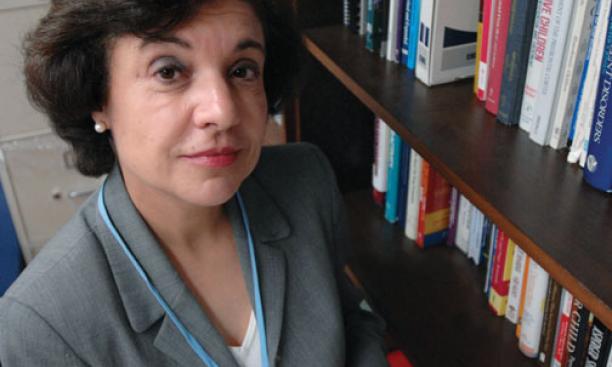

When Mary Solanto ’73 opened a center for attention deficit hyperactivity disorder (ADHD) at New York’s Mount Sinai Medical Center in 1999, she was expecting to primarily treat children with the disorder. But some of the parents of her patients recognized in themselves the same symptoms their children had, and asked for help.
Studies indicate that about 8 percent of children and 4 percent of adults have the disorder, says Solanto, an associate professor of psychiatry who specializes in ADHD. But only about 25 percent of adults with ADHD have been diagnosed, she says, and 10 percent received treatment in the last year.
The disorder can take a toll on a person’s work and social life. Adults with ADHD are more likely than the average person to be underemployed or unemployed. Symptoms of the disorder in adults include difficulty sustaining focus and finishing things, distractibility, problems with time-management and organization — and, in some adults, impulsiveness. These symptoms can lead to difficulty in completing tasks and to problems with money and relationships. Adults with ADHD, notes Solanto, also are more likely to be divorced, marry prematurely, get into car accidents, and abuse drugs and alcohol.
Solanto and colleagues at the Center of Excellence in ADHD and Related Disorders at Mount Sinai have developed an award-winning cognitive-behavioral therapy program for adults with ADHD, about which they published a 2010 paper in the American Journal of Psychiatry. Patients learn strategies and skills for time-management, organization, and planning. They learn to keep a daily planner, break overwhelming tasks down into manageable parts, prioritize tasks and develop long-range plans, and deal with negative thoughts.
Adults with ADHD, explains Solanto, can get depressed and anxious because they feel they are underachieving or having trouble maintaining healthy relationships. Because they’re behind so much, many people with ADHD feel they don’t deserve any time off from work, she says.
Solanto and her colleagues created a treatment manual (included in their 2011 book, Cognitive-Behavioral Therapy for Adult ADHD: Targeting Executive Dysfunction) that other therapists can use. Medications often are helpful in controlling symptoms of ADHD, she says, but medication is not enough for many adults. The program she developed has helped patients become more productive and less distractible, she says.
The disorder, she observes, has been under-diagnosed by professionals, but awareness has grown in recent years. With treatment, children often find they get better grades and have a more positive school experience; adults find they have more control in their lives.
Solanto is looking into developing new cognitive-behavioral therapy groups for adults: for parents with ADHD, for parents who are taking care of adult children with ADHD, and for people in various professions to help them with specific strategies geared to their work environments. “There’s a lot of work to be done, but it does seem very hopeful.”
